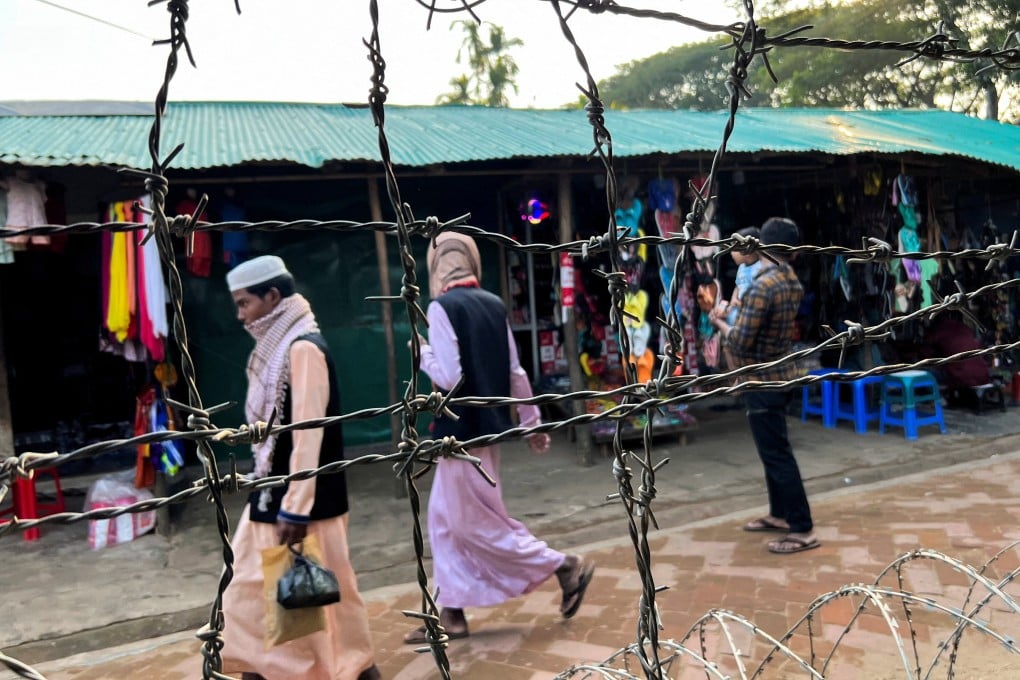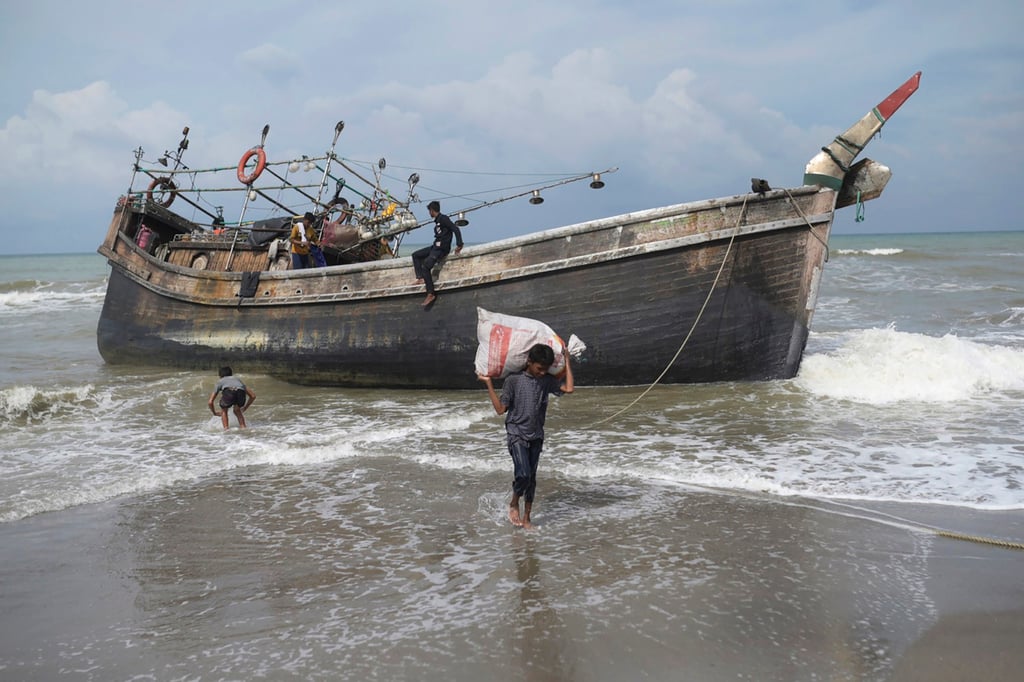Advertisement
Rohingya risk death, rape at hands of smugglers to escape ‘open-air prison’ in Myanmar, Bangladesh
- Reliance on smuggling networks puts Rohingya Muslims at risk of being trafficked and exploited as they try to leave abysmal living conditions
- Those in Myanmar and Bangladesh usually try to go to Malaysia, with smugglers using Indonesia or Thailand as major transit countries
Reading Time:4 minutes
Why you can trust SCMP
1

Gura Amin, 20, says he can “never forget the most difficult time” in his life, when he drifted at sea for seven months with about 900 other Rohingya refugees on a boat run by smugglers, who had promised to take them to Malaysia only to arrive in Indonesia.
With their help, Amin was able to leave a refugee camp in Bangladesh, home to more than a million refugees like himself, where he lived for five years with little to no education or job prospects. But he could not accept what he experienced and witnessed on the boat in 2020.
“One hundred people died. There was no food, no water, nothing to survive [on],” he said, adding that anybody asking for food or water was beaten with a plastic pipe and that many women were raped. “When we arrived in Indonesia, the doctor checked and found that many women were pregnant.”
Advertisement
While he acknowledged the role smugglers played in helping him escape, the gratitude stopped there. “Of course I hate them. One day they will have to answer for these events to the Creator,” Amin said.

Smuggling networks enable Rohingya Muslims to leave abysmal living conditions in Myanmar and Bangladesh and seek opportunities in other countries, according to a December report by the Protecting Rohingya Refugees in Asia (PRRiA) project, an initiative funded by a European Union agency in 2021.
Advertisement
Advertisement
Select Voice
Choose your listening speed
Get through articles 2x faster
1.25x
250 WPM
Slow
Average
Fast
1.25x